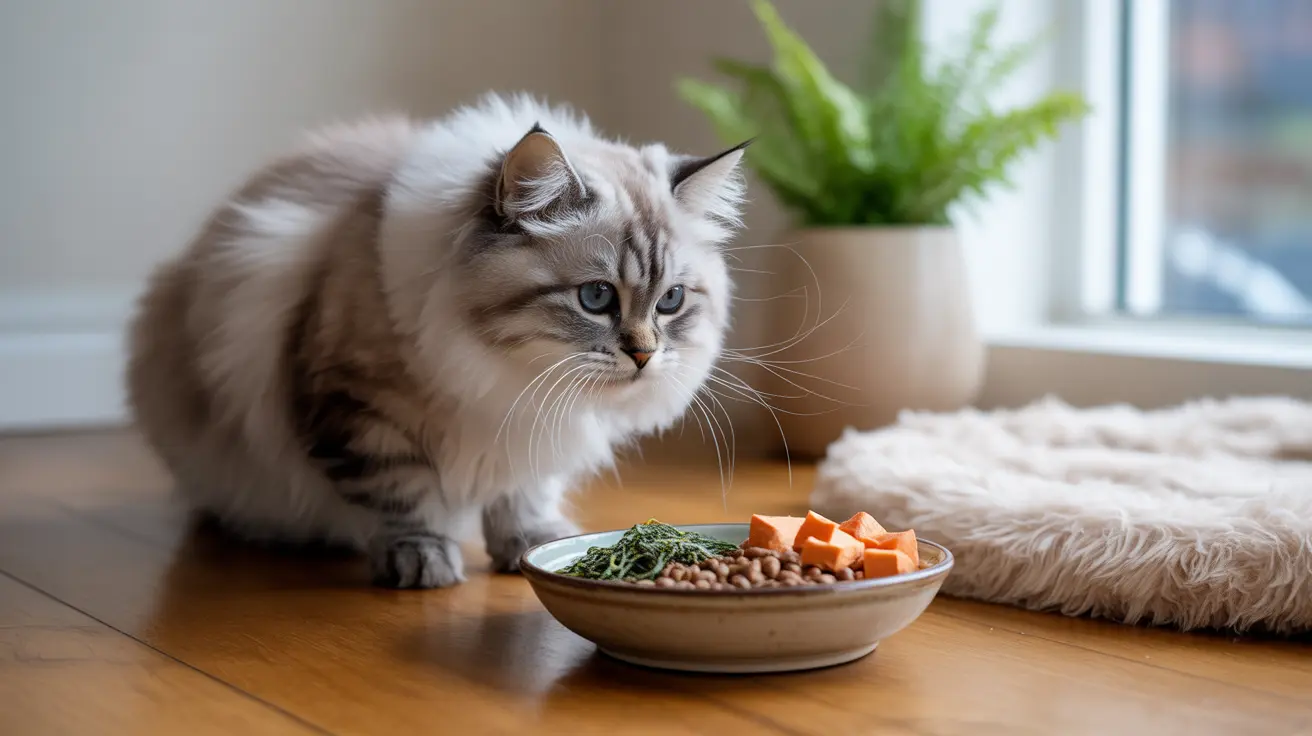As more people adopt plant-based lifestyles, some pet owners wonder if their feline companions can follow suit. However, the question of whether cats can thrive on a vegan diet isn't just about personal choice – it's about fundamental feline biology and health requirements.
In this comprehensive guide, we'll explore the scientific evidence behind cats' nutritional needs and examine why veterinary experts consistently caution against vegan diets for our feline friends.
Understanding Cats as Obligate Carnivores
Cats are classified as obligate carnivores, meaning they must eat meat to survive. Unlike humans or dogs, cats' bodies are specifically designed to process and utilize nutrients found in animal tissue. Their digestive system is shorter than that of omnivores, and they lack certain enzymes needed to properly process plant materials.
- Sharp, pointed teeth designed for tearing meat
- A short digestive tract optimized for meat digestion
- Limited ability to produce certain amino acids from plant sources
- Specialized nutrient requirements only found naturally in animal tissue
Essential Nutrients Cats Need from Meat
Several crucial nutrients that cats require are either absent in plant-based foods or present in forms cats can't effectively utilize:
Taurine
This amino acid is essential for heart function, vision, and reproduction in cats. While synthetic taurine exists, natural sources are exclusively found in animal tissues.
Vitamin A
Cats cannot convert beta-carotene from plants into active Vitamin A. They need preformed Vitamin A, which naturally occurs only in animal products.
Arachidonic Acid
This fatty acid, crucial for inflammation response and skin health, is only found in animal-based foods.
The Risks of Vegan Cat Diets
Attempting to feed cats a vegan diet carries several serious health risks:
- Nutritional deficiencies leading to heart problems
- Vision deterioration or blindness
- Compromised immune system
- Poor coat condition and skin problems
- Developmental issues in kittens
- Potential organ failure
Commercial Vegan Cat Foods: A Closer Look
While some companies produce vegan cat foods supplemented with synthetic nutrients, these products face several challenges:
- Difficulty maintaining consistent nutrient levels
- Questions about long-term effectiveness
- Limited research on bioavailability
- Higher cost due to extensive supplementation needs
Professional Veterinary Consensus
The overwhelming majority of veterinary professionals advise against vegan diets for cats. Major veterinary organizations worldwide maintain that cats require animal-based nutrition for optimal health and longevity.
Frequently Asked Questions
Is it safe to feed my cat a vegan diet?
No, feeding cats a vegan diet is not considered safe by veterinary professionals. Cats are obligate carnivores and require nutrients found naturally only in animal tissues for optimal health.
What are the risks if I put my cat on a vegan or vegetarian diet?
Risks include heart disease, blindness, muscle weakness, developmental problems, immune system dysfunction, and potentially death if essential nutrients are lacking.
How do I ensure my cat gets all necessary nutrients on a vegan diet?
It's extremely difficult to ensure complete nutrition through a vegan diet. If you must pursue this option, work closely with a veterinary nutritionist and conduct regular blood work to monitor your cat's health.
Can cats be healthy on a well-formulated vegan diet, and what are the potential health benefits and risks?
While technically possible with extensive supplementation and monitoring, there are no proven health benefits to feeding cats a vegan diet. The risks far outweigh any potential benefits.
What are the essential nutrients that must be supplemented in vegan cat food to prevent health issues?
Essential supplements include taurine, preformed Vitamin A, arachidonic acid, vitamin B12, and specific amino acids. However, synthetic supplements may not be as bioavailable as natural sources.
Conclusion
While the desire to extend ethical dietary choices to our pets is understandable, cats' biological needs make vegan diets extremely risky. Instead of attempting to modify your cat's natural dietary requirements, consider providing the highest quality, ethically-sourced meat-based diet possible to ensure your feline friend's optimal health and longevity.






